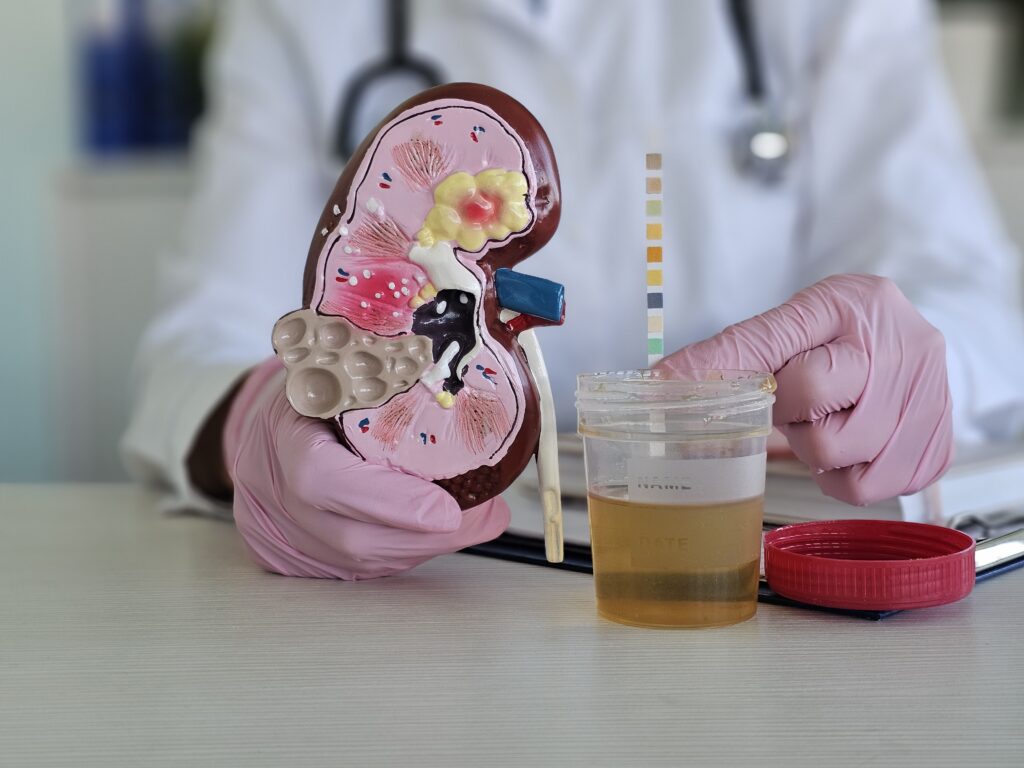What is Proteinuria?
Proteinuria means there is too much protein in your urine. Normally, your kidneys keep protein in your blood. However, when your kidneys are not working well, protein can leak into your urine. This is often an early sign of kidney disease. According to the CDC, proteinuria is a key marker for kidney health. Early detection can help prevent further kidney damage. For this reason, doctors often check for proteinuria during routine urine tests.
Causes of Proteinuria
Many things can cause proteinuria. Sometimes, it is temporary and harmless. Other times, it signals a serious kidney problem. Here are some common causes:
Because there are many possible causes, it is important to find out why proteinuria is happening. Early treatment can protect your kidneys.
Symptoms of Proteinuria
Often, proteinuria does not cause any symptoms at first. In fact, many people only find out during a routine urine test. However, as protein levels rise, you may notice:
Still, these symptoms can be caused by other health issues too. So, it is important to talk to your doctor if you notice any changes.
When to See a Doctor
If you see foam in your urine or notice swelling, you should contact your doctor. Additionally, if you have diabetes, high blood pressure, or a family history of kidney disease, regular check-ups are important. Early testing can catch proteinuria before it leads to serious problems. According to the National Kidney Foundation, early treatment can slow or stop kidney damage. Do not wait for symptoms to get worse. Instead, seek medical advice as soon as you notice changes.
Conclusion and Next Steps
In summary, proteinuria is a sign that your kidneys may not be working properly. While it can be caused by many things, early detection is key. If you notice any symptoms or have risk factors, do not ignore them. Regular urine tests can help protect your kidney health. Consult a healthcare professional for personalized advice about proteinuria.
